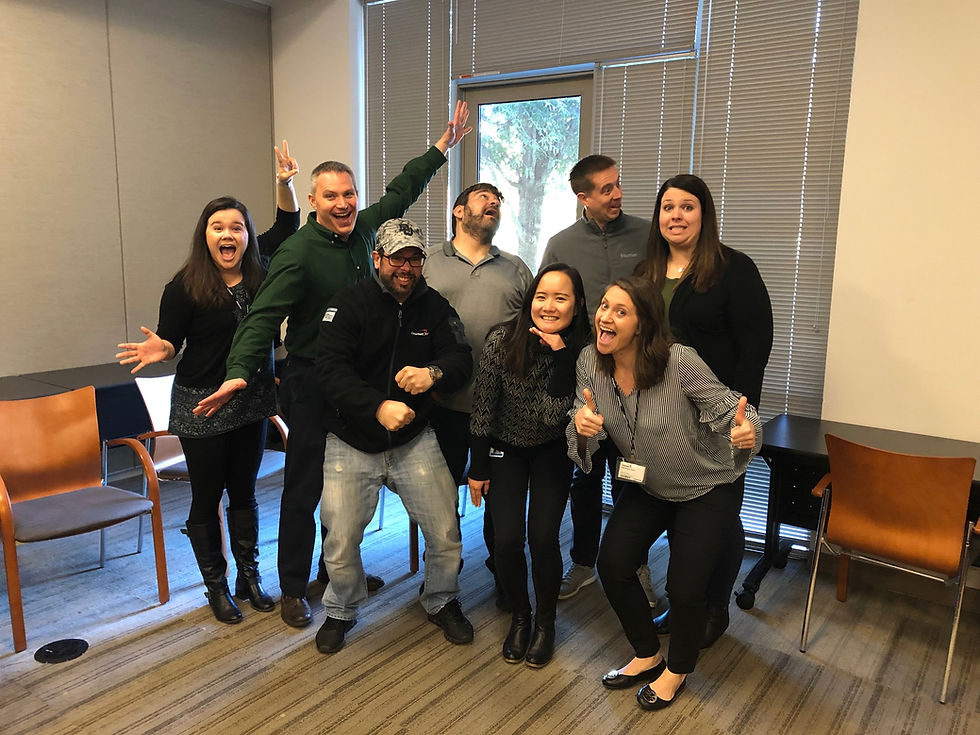Listening Skills...How Improv Can Help
- Alexandra Horn
- Feb 10, 2020
- 3 min read
“The lost art of listening...” was the phrase, as the HR-manager discussed some of the issues their organization was managing. The sentiment, if not the actual phrase, is one we, and many other improv-based corporate training organizations hear when talking to our clients about how we can help.
Being a good listener is essential to creating a productive, cohesive team. It’s also a core foundation to creating great improv. In both settings, it’s about genuinely listening and then responding. As opposed to listening to respond, or passively listening while you wait to say what you were going to say regardless of what’s being said.

NY Times contributor Kate Murphy has a new book titled, You're Not Listening: What You're Missing and Why it Matters focuses on this topic, and the impact it has for people and organizations.
Often, too often in most cases, individuals are struggling to actively listen, while at the same time expecting to be heard. Clearly a recipe for failure (perhaps even disaster) within a team, company, political environment, etc. Something has to change for this to work.
Within the sessions we design for our clients (through our corporate training programs in the Dallas-area and when we focus on building stronger teams though our improv-based approach), active listening is a core component. As referenced above, listening, and we mean really listening, is required for improv to work. The same applies directly to any corporate setting.
As Murphy, who is a skilled interviewer, highlights in her book, the ability to listen actively and attentively is something that is quite rare, “When I interview people – whether it’s a person on the street, CEO or celebrity – I often get the sense that they are unaccustomed to having someone listen to them.”
This is happening in offices all over the world.
Within a group, the belief that your thoughts, opinions and ideas are being genuinely listened to and responded to thoughtfully is essential. It’s what connects people to a group, creates an environment of support and security, where everyone is engaged, not just a few members of the team. And a group that actively listens to each other, accepts what others are saying and contributes to the conversation (can you see the “Yes, And principle in all of this) is a group that will unleash creativity, innovation, and productivity…and will enjoy hanging together.
That all said, be a great listener is easy to say, but harder to put into practice on a regular basis.
If you’re the leader of a group, ask yourself if your colleagues feel you always listen to understand? Do they feel engaged with you during interactions, respected? Empowered? Are you open to new ideas, suggestions?
If you’re answering “no” to any of the above, take steps today to shift your approach.
Drop us a line if you’re interested in any of our tips, or seeing how we might be able to help your management group in the areas of collaboration, communication, support, trust, and creating teams that love working together.
Connect with either of us here at Improv to Improv in Dallas
Alex at Alex@improvtoimprove.orgor Kayce at Kayce@improvtoimprove.org
**********************
And for anyone in Florida looking for workshops and tips in these areas, our friends at SAK Improv have a lot of experience working with corporate clients as well. They do a lot of team building workshops in the Orlando-area and throughout Central Florida, as well as working with clients all over Florida with their corporate workshops.
Check them out - Team Building workshops in Orlando




Comments